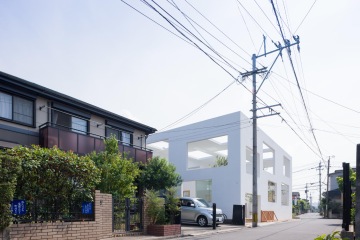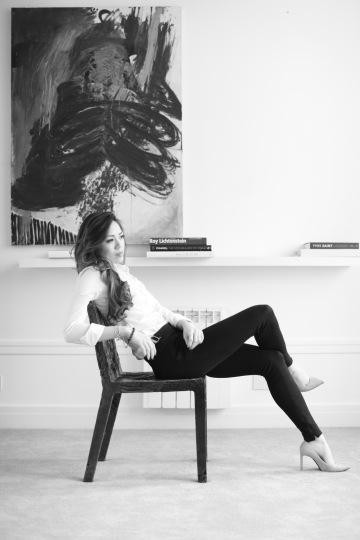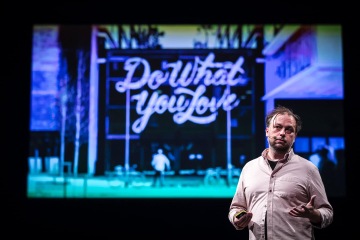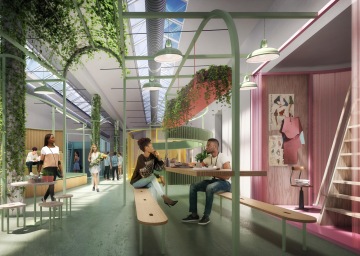
reSITE 2018 ACCOMMODATE: The Creative Paradox of Housing
While some blame creativity as being a factor in the rising cost of living within attractive cities, the thinkers, architects, municipal leaders and developers who spoke at reSITE 2018 ACCOMMODATE in Prague have unanimously called for creative solutions to the housing challenge.
It's hard to believe reSITE 2018 is over - our minds are still buzzing with ideas, incredible visual presentations and movies, and our social media and event app are full of new contacts and messages about future cooperation.
On behalf of reSITE, our premium partner Penta Real Estate, and the City of Prague, we insist on thanking all of the fantastic speakers and moderators, our audience, as well as our media partners, design partners, and sponsors who have contributed to creating our best event ever.
How and where do we want to live — and how will we afford it? Nearly 1200 visitors registered for reSITE 2018, hailing from 37 countries: ACCOMMODATE on June 14— 15 in Prague, where a global lineup of speakers explored the future of cities and housing. Architects Jeanne Gang, Sou Fujimoto, and Michel Rojkind offered new visions for living together in public space; WeWork, MINI, and Design Haus Liberty presented bold plans for co-living, and dozens of architects, mayors, planners, and investors debated how to solve the global housing crisis.
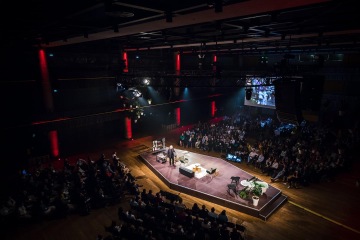
You can’t talk about housing in isolation, housing needs to have a love affair with planning.
LSE Cities director, Ricky Burdett opened the event Thursday morning saying “You can’t talk about housing in isolation, housing needs to have a love affair with planning.” Burdett’s opening keynote framed the challenge succinctly: “Inequality is baked into the design of cities.” What we need, he said, is “convergence — living in the areas where everyone has the same opportunities, not opportunities based on postal code.”
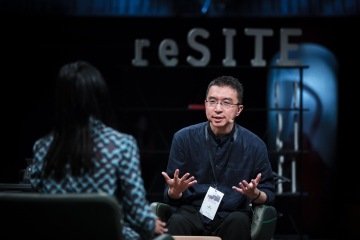
Japanese architect, Sou Fujimoto considers that the schools, and art pieces, act as acupuncture in developing cities, touching a nerve that tweaks the whole body. Sou sees a city as a society where you don’t have to force everybody to do something, but provide the spaces and choices to do so.
Nightlife participates in the development of neighborhoods and are the first to be victims of their success.
“You can’t buy creativity, you can only nurture it,” was the observation made by Amsterdam’s Night Mayor Mirik Milan, advocating for cities to support their nighttime economies, rather than allowing them to be a victim of their own success. "I truly believe that a culturally rich nightlife can lead to more connected and diverse city" he goes on to discredit the myth that nothing good happens after midnight.
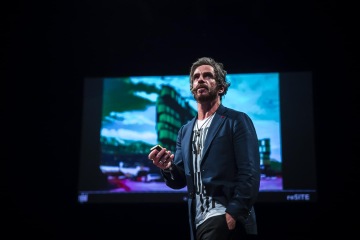
If architects are designing the hardware, who is designing the software?
Mexican architect Michel Rojkind insisted on the social reconstruction that needs to be involved in every space we design and build. “We have to design spaces for other things to happen”, might those other things be inclusiveness and affordability. Reframing the approach “Is architecture enough?” Rojkind asked, "If architects are designing the hardware, who is designing the software?"
It's not about minimizing, it's about being flexible".
Today’s most inspiring examples of experimenting with new living concepts were presented by MINI Living, WeLive and the civic platform URBZ. “MINI is blurring the boundaries between public and private. You have the opportunity to share with your neighbor at any scale,” said MINI Living creative director Oke Hauser, attemepting to destigmatize sharing "It's not about minimizing, its about being flexible".
Focusing on informal housing, URBZ founders, Matias Echanove and Rahul Srivastava, make the case for homegrown cities as no less valuable than the pre-planned development neighborhoods. "We have made cities where you assimilate into a cell and not where you help build your own accommodation. Assimilate is forcing something to fit into a space, whereas accomodate is the user and the space fitting each other"
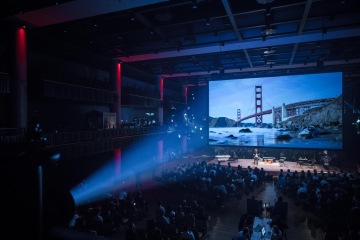
What we should be building in addition to homes are spaces for social interactions to happen. We need to re-introduce the notion of interacting and being empathetic towards one another.
Other speakers argued for reframing the question from what we can afford to what we can build. “Architecture is the perfect mechanism to create relationships between people and their environment,” said Studio Gang Founder Jeanne Gang, highlighting her firm’s work in high-rise living. "What we should be building in addition to homes are spaces for social interactions to happen. We need to re-introduce the notion of interacting and being empathetic towards one another.
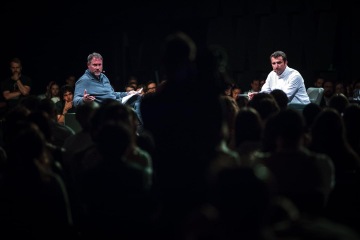
When people feel they created or were part of something, they take care of it and feel like they belong.
An approach that is very well understood in the Albanian capital. For its Mayor Erion Veliaj, a demographic tsunami of 25-30,000 people moving to Tirana per year is an opportunity the city wants to accommodate. “Maintaining the economic diversity is worth the price of subsidizing units and offering soft loans,” explaining the state policy of supporting rents for struggling families and students, during his talk show with the managing director of Citylab Rob Bole. He says that politicians shouldn’t think about the next election but about the next generation. “Children are the drivers for the most radical change,” he added.
His approach and emphasis on inclusion is based on the idea that "when people feel they created or were part of something, they take care of it and feel like they belong."
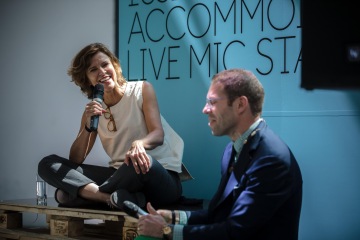
Discoveries + encounters at reSITE
For the first time, reSITE hosted lively and popular discussions on its intimate Live Mic Stage. Sou Fujimoto, Jeanne Gang, Ricky Burdett, Dara Huang, Michel Rojkind, and other speakers shared “what I’ve learned” with visitors asking about what happens behind the scenes of their work.
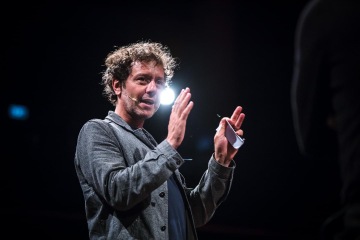
Architects should collaborate with software engineers just as they do with structural engineers.
reSITE also hosted the premiere of the drone documentary Elevation. The directorial debut by Dezeen founder Marcus Fairs is an eye-opening odyssey into the future of living and urban design once drones become as ubiquitous as the Internet. Fairs noted in his commentary that “architects should collaborate with software engineers just as they do with structural engineers.”
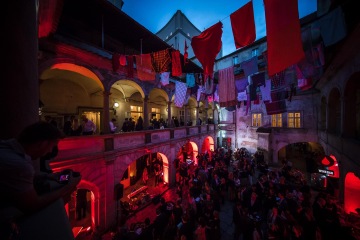
The event has again fulfilled its mission to bridge the gaps, and create long-lasting connections and relationships, by organizing social and fun events, such as the annual party in the Renaissance courtyard of Bokovka, a fun Run with Michel Rojkind, and meetups at Manifesto, the new cultural and food pop-up space powered by reSITE.
A slew of workshops and discussions, open to the public, were curated and hosted by the team and partners of the Shared Cities: Creative Momentum project.
#reSITE2018 Spotted on Social Networks
Sou Fujimoto is in conversation with @martinbarry_ founder of reSITE, at the @reSITE_ 2018 Live Mic Stage for #ACCOMMODATE #housing #reSITE2018 pic.twitter.com/zzYoL3dTCl
— World Architecture (@WACommunity) June 15, 2018
This guy’s great. Elion Viliaj, Mayor of Tirana, pro-kid, pro-inclusion, pro-participatory, rock-n-roll-inspired. “Kids are radical revolutionary forces for change.” @reSITE_ #reSITE2018 pic.twitter.com/vQeqcAuhAL
— Laura Flanders (@GRITlaura) June 15, 2018
Very happy to be at #reSITE2018 in Prague to interview Mayor of Tirana, Erion Veliaj. Great stage @martinbarry_ pic.twitter.com/8QpHCXchFE
— Rob Bole (@rbole) June 15, 2018
First event I've spoken at where I've been given socks #resite2018 pic.twitter.com/MUEjsatRmO
— Tim Maughan (@timmaughan) June 14, 2018
"When people feel they created or were part of something, they take care of it and feel like they belong" #ErionVeliaj Mayor of #Tirana #Albania @erionveliaj + @rbole, @CityLab #citylabontheground pic.twitter.com/jWDx1O7y3T
— reSITE (@reSITE_) June 15, 2018
What a treat meeting @Mirikmilan - creative Night Mayor of Amsterdam @reSITE_ to talk about life after dark & planning for fun! Cities can benefit a lot from the night economy & 24/7 life! ????????????
— Erion Veliaj (@erionveliaj) June 16, 2018
Will soon have him & our Night Mayor @BrikenFejzullahu to boost Tirana’s edge ???????? pic.twitter.com/avUYBy4krf
Loved bumping into @soufujimoto at @reSITE_ in Prague, author of The Cloud @reja_albania - a prime example of what city acupuncture can generate in arts and culture! ????????
— Erion Veliaj (@erionveliaj) June 16, 2018
The Cloud - as backdrop or interior - hosts over 150 events a year & Tirana absolutely loves it! ☁️❤️???? pic.twitter.com/XpcLIL9DLU
“How do you design for social reconstruction? We always make the mistake to define: this is public, private, a park, a library, while design is nothing without holistic function.” Michel Rojkind at #reSITE2018. @rojkind_arq @reSITE_ #ACCOMMODATE #michelrojkind
— PLANE—SITE (@plane_site) June 14, 2018
More from reSITE
Sou Fujimoto: A Home is a Protected Freedom
In this interview with reSITE, Fujimoto shares his thoughts on the future of housing, and on what makes a house a home.
What is Luxury? Interview with Dara Huang at reSITE 2018
Dara Huang is an award winning architect and founder of Design Haus Liberty, an architectural firm that often works with clients to design high-end buildings.
Live Better, Live Together. WeLive’s creative engine Darrick Borowski
Darrick Borowski of WeWork talks about WeLive, a co-living space that attracts residents from all walks of life. Darrick is an architect, urbanist, researcher, and educator based in New York City.
Could a Car Company have the Solutions to an Urban Rent Crisis?
Oke Hauser, Creative Lead of MINI Living, an initiative by MINI that aims to address the shortage of affordable urban housing and public spaces.
